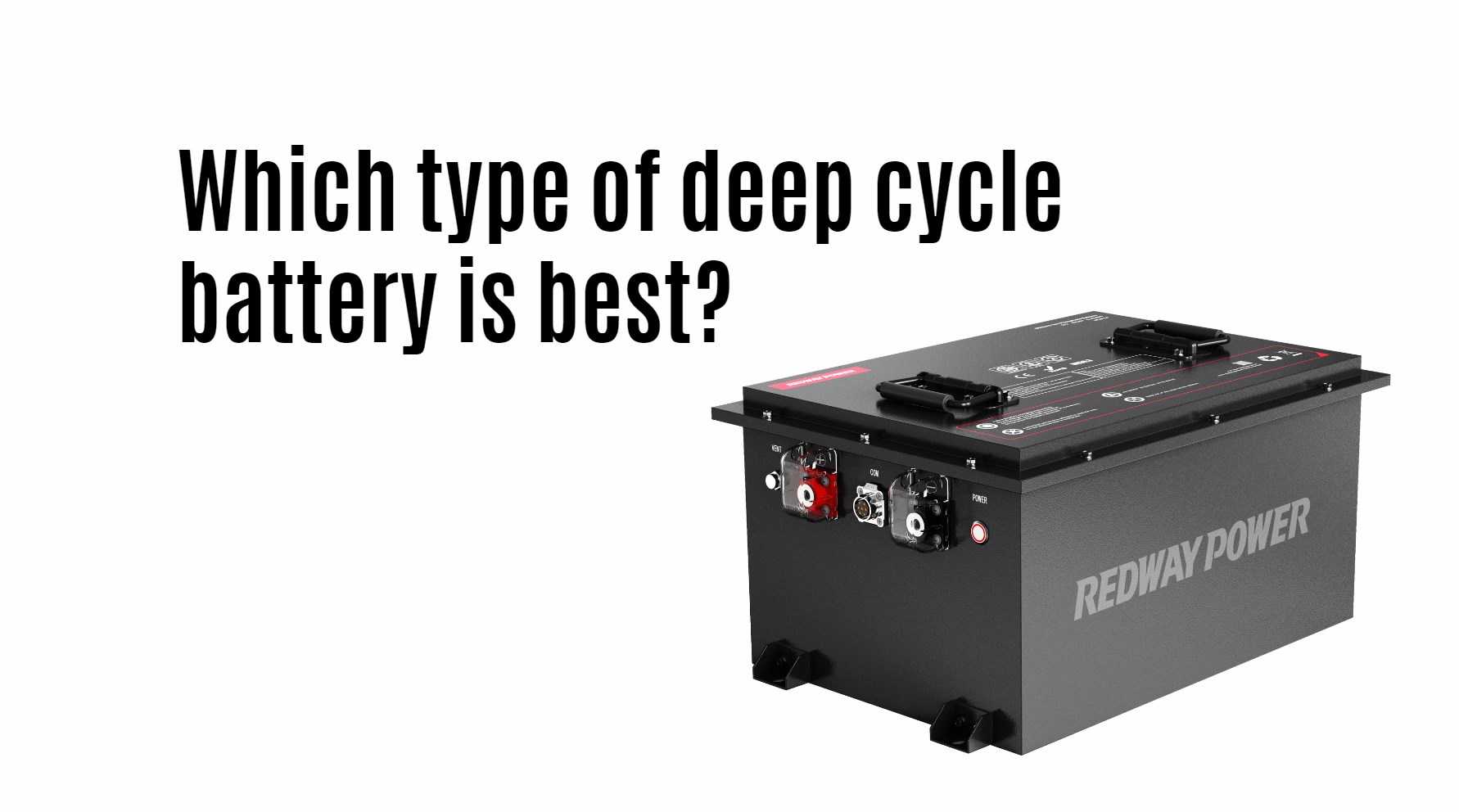Choosing the best deep cycle battery depends on your specific needs and applications. Generally, lithium-ion batteries are considered the best option due to their long lifespan, lightweight design, and high discharge rates. However, AGM (Absorbed Glass Mat) batteries also offer excellent performance for various applications, particularly in marine and RV settings.
Types of Deep Cycle Batteries
1. Lithium-Ion Batteries
- Lifespan: Lithium-ion batteries can last between 3,000 to 5,000 cycles, significantly outpacing traditional lead-acid options.
- Weight: They are typically 50% lighter than lead-acid batteries, making them easier to handle and install.
- Depth of Discharge: Lithium batteries can be discharged up to 100% without damaging the cells, providing more usable capacity.
- Cost: While they are more expensive upfront, their longevity and performance often make them more cost-effective in the long run.
2. AGM Batteries
- Lifespan: AGM batteries generally provide around 500 to 1,000 cycles, depending on usage and maintenance.
- Maintenance-Free: These batteries are sealed and do not require water refilling, making them low-maintenance.
- Performance: AGM batteries have a lower internal resistance, allowing for faster charging and higher discharge rates compared to flooded lead-acid batteries.
- Cost: AGM batteries are usually less expensive than lithium-ion batteries but can still be a significant investment.
3. Flooded Lead-Acid Batteries
- Lifespan: Flooded batteries typically last about 300 to 500 cycles, with regular maintenance required to ensure longevity.
- Maintenance Required: They need periodic watering and can emit gases during charging, which necessitates proper ventilation.
- Cost: Generally the most affordable option upfront but may incur higher long-term costs due to shorter lifespan and maintenance needs.
4. Gel Batteries
- Lifespan: Gel batteries offer a cycle life similar to AGM but are less common in deep cycle applications.
- Safety Features: They are less prone to leakage and are more resistant to vibration than flooded lead-acid batteries.
- Cost: Gel batteries tend to be more expensive than flooded batteries but less so than lithium-ion options.
Comparison of Deep Cycle Battery Types
| Battery Type | Lifespan (Cycles) | Depth of Discharge | Weight | Maintenance | Cost |
|---|---|---|---|---|---|
| Lithium-Ion | 3,000 – 5,000 | Up to 100% | Light | None | High |
| AGM | 500 – 1,000 | Up to 80% | Moderate | None | Moderate |
| Flooded Lead-Acid | 300 – 500 | Up to 50% | Heavy | Regular upkeep | Low |
| Gel | 500 – 1,000 | Up to 80% | Moderate | None | Moderate |
Latest News on Deep Cycle Batteries
- Advancements in Lithium Technology: Recent innovations in lithium battery technology have led to improvements in energy density and safety features, making them even more appealing for various applications.
- Sustainability Initiatives: The battery industry is increasingly focusing on sustainable practices, including recycling programs for used batteries and sourcing materials responsibly.
- Market Growth for Lithium Batteries: The demand for lithium-ion deep cycle batteries is rising as more consumers recognize their advantages over traditional lead-acid options.
Redway Expert Comment
“As experts in lithium LiFePO4 battery technology, we believe that lithium-ion batteries represent the future of deep cycle energy storage. Their superior lifespan, efficiency, and lightweight design make them ideal for a wide range of applications from RVs to renewable energy systems. While the initial investment is higher, the long-term benefits far outweigh the costs.”
Conclusion
In conclusion, while lithium-ion batteries are generally considered the best type of deep cycle battery due to their longevity and efficiency, AGM batteries also provide excellent performance for specific applications. Ultimately, the choice depends on individual needs, budget constraints, and intended use cases. By understanding the differences between these battery types, you can make an informed decision that best suits your energy storage requirements.




